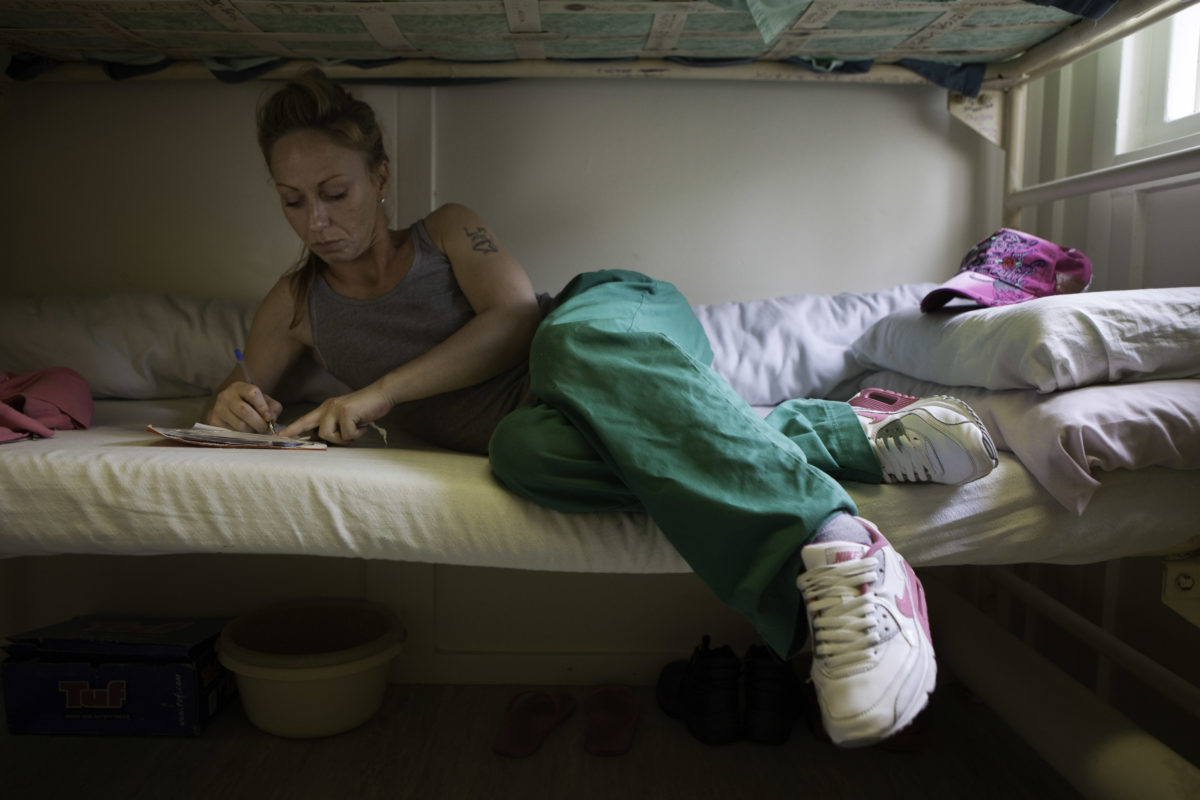Women prisoners were only being allowed out of their cells for 30 minutes a day, according to a new prison inspection which has found a marked decline in mental health post-lockdown. The latest report by the HM Chief Inspector of Prisons showed a rise of self-harm in women’s prisons due to the restrictions implement during the pandemic and provided further evidence of the failure of the early release program.
Of 120 prisoners seen as potential candidates for the government’s well publicised early release scheme, only two had actually left. It was reported that ‘local managers were rightly frustrated by the large abstraction of staff time to achieve such a minimal impact’. The same failure was seen in the efforts to release pregnant and medically vulnerable prisoners or mothers with babies. Only four women were released in all three prisons together.
Due to Covid-19 restrictions, the released prisoners did not meet face to face with community rehabilitation company staff to discuss resettlement needs. Release planning was also undermined by a lack of accommodation for prisoners on release. One in five of prisoners were released homeless from Foston hall (20%) and 40% at Bronzefield and Eastwood Park which, according to the the inspectors, wasn’t a ‘safe way to release potentially vulnerable prisoners, especially during a pandemic’.
The inspection was a new style ‘short scrutiny’ visit looking at three similar establishments in this case prisons holding women: HMP & YOI Bronzefield, HMP & YOI Eastwood Park and HMP & YOI Foston Hall. The aim of these inspections is provide a snapshot of how the establishment is responding to the COVID-19 pandemic. Altogether the three establishments hold 1250 women, with Bronzefield, the largest, holding 550.
Most prisoners in all three institutions spent 23 hours a day in their cells. In Foston Hall, prisoners received just 30 minutes in total out of their cell to exercise. In Bronzefield, prisoners could stay out in the open air for half an hour only, with an extra half hour to use the showers and the electronic kiosk. This period was also reduced for the prisoners that had in-cell showers.
Prisoners were particularly frustrated with the suspension of visits, since a high proportion of prisoners were previously primary carers for children. The report states that the managers at all three prisons were slow in implementing video calling and by the time of the report drafting they weren’t yet implemented.
All three prisons implemented restrictions to secure the prisoners safety during the pandemic, such as ensure prisoners could only come out of their cells in smaller groups, or isolate the new prisoners, as well as the most vulnerable or who had shown symptoms of the virus. However, some of the measures had not been properly implemented. In Eastwood Park, new prisoners received time out in the open air in groups that included prisoners who arrived on different days and they changed day today.
The report shows that the restrictions implemented had a negative impact on the mental health of prisoners with very high levels of need of mental health support. Those prisoners were receiving ‘significant structured support’ from a range of agencies before the restrictions. Since those services where stopped or drastically restricted in all three prisons, it created a risk that these prisoners’ welfare could seriously deteriorate. Self-harm increased from the already high levels seen prior to the restrictions and it remained above the level seen before. According to Bronzefiled’s own analysis, most cases occurred among long-staying prisoners. Prisoners at risk of self-harm felt isolated from others and craved more human contact. The very sudden withdrawal of a range of interventions worried the inspectors.







